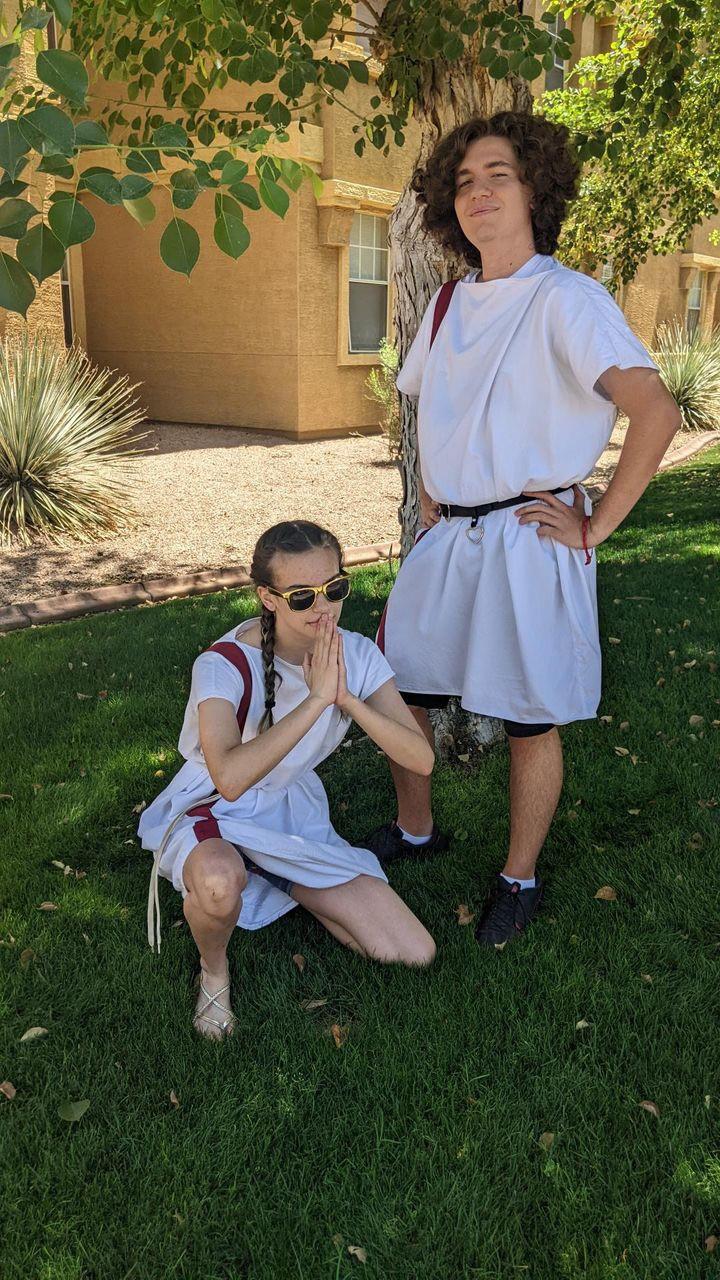The Crisis of Catiline, a classroom activity turned role-playing game
The Senate Game: Crisis of Catiline is a historical role-playing activity designed to be performed in Roman History classes, created by Bret Mulligan. ASU classical civilizations major Austin Hunter has taken this cassroom activity introduced to him by Dr. Blake Hartung and turned it into a virtual tabletop role-playing game.
This entirely virtual version, run primarily through Discord and Zoom, is more focused on the role-playing, politicking and sneaking around, as opposed to turns or rolling dice. Though when it comes to assassinations, the gamemaster, Jupiter, is the one who rolls the dice and determines the fates of the players. According to Austin Hunter, it took more than three months to prepare his version, and the game continued to update and change as new issues or questions cropped up.

“Where the classroom version is meant to be a teaching tool, [this] really is meant to be more of a role playing game. To that end, the historicity of the game is looser, less pressure is put on players to do research, and the game has a lot more focus put on narratives that develop as the game continues, as opposed to what happened historically,” Hunter said.
He also “added several systems to the game to make the game play more complex—money systems, military loyalty systems, markets and other gods,” in order to simulate Rome without it having to be taught to the players, making the game more immersive and also more informative to those unfamiliar with it in the process.
Hunter, who played the role of Jupiter the game master, has managed all of the back end of the Discord format, having created “another entirely separate Discord server [he uses] to keep track of things.” This is necessary given his expanded version of the server, which totals out to being somewhere between four and five times larger than any other person’s view in the entire Discord server.
The players included current and former ASU students, as well as professors in the Classics department, one of which is Sarah Bolmarcich, Senior Lecturer in Classics, who played L. Licinius Murena, a boni and consul designatus. She has enjoyed “thinking about the most outrageous thing Murena could do, then doing it, and seeing people laugh or be horrified or roll their eyes.” From a teacher’s perspective, Bolmarcich said, “It's fun to watch [the players] having fun. You're going to learn a lot without even realizing it.”
Another player, Andrew Cruz, an ASU alumni with a degree in history and classical civilizations, played the role of Lucius Sergius Catilina, a popular senator and the implied antagonist of the game. Cruz said he enjoyed exploring a historical figure whom he believes to have been misportrayed by some contemporary writers such as Cicero and Sallust.
“It’s been fun to play an anti-hero who does actually want to do the best he can for the Republic and is a devout believer that the end justifies the means,”he said.
Autumn Byars, a senior fine arts major, also enjoyed playing the Senate Game. Byars portrayed Lucius Aurelius Cotta, a Censor and member of the Boni party. She said she has “played lots of RPGs before, but never one formatted like this. [She] really [liked] going to the gods' sacred spaces to petition them. Each god has a temple or holy site that is a literal location in our city. You can make sacrifices to the gods, ask them for favors, or even just hang out and interact with other characters. Some of them have other things you can do as well; for example, players can share their art in Minerva's temple and jokes and skits in Bacchus's circus. The Romans were a really religious people, and I, of course, was really into mythology as a kid, so those parts of the server add a really fun, immersive layer to the game for the players that want it.”
She said that despite playing historical figures, “there's still lots of room for people's personalities to come through. Everyone has a different strategy and a different way of playing; it's really fun to see everyone's different play styles and tactics.”
Amber Luu, currently earning a master’s degree in computer science, played the role of Dis Pater—an amalgamation of gods Hades and Pluto. She said the experience of playing a god is much different than that of playing a senator.
“I think that not being a senator means that I don’t have as much pressure to deliver since my goals aren’t as set up as the other characters. A senator’s character sheet already comes pre-made with their own goals, but as a god I helped with building the mechanic of gods in the game and made mine super flexible. I’m mostly here just observing the senators while still kind of having a role in the game” she said.
The current period of play for the Senate game is complete. \War broke out and Rome barely pulled through victorious. Cataline managed to maintain control over Rome and was one of the game’s winners. While Professor Bolmarcich’s joking prediction of “Jupiter spontaneously [combusting] over [their] nonsense and [zapping] Rome” didn’t come true, the city was left in shambles nonetheless.
For more information on joining in on this discord role-playing game the next time it is run, or information on joining any others that are run in the future, please check out the Solis Diaboli Discord server.